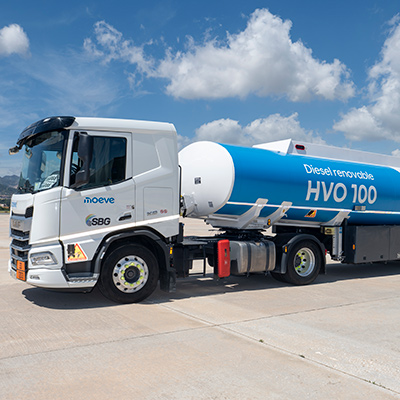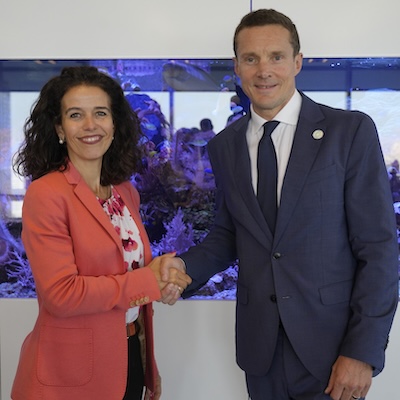Moeve has joined forces with other member companies of the Global Impact Coalition (GIC) to advance a new methanol-based pathway to electro-Sustainable Aviation Fuel (e-SAF) and low-carbon chemicals in Europe. Starting with a feasibility study, the companies have formalized a dedicated spin-off structure to accelerate the development of this innovative route based on Methanol-to-Olefins (MTO) technology — a sustainable alternative to conventional fossil-based production routes.
For Moeve, this initiative represents a strategic step forward in developing a differentiated route to e-SAF, distinct from the Fischer-Tropsch pathway. The process enables to convert e-methanol into e-SAF through the production of sustainable olefins. This pathway offers synergies such as economy of scale and a flexible approach to scaling low-carbon aviation fuels, a crucial need given that aviation contributes approximately 3% of total greenhouse gas emissions globally. Advancing such alternatives is essential to decarbonizing one of the hardest-to-abate sectors.
At the same time, sustainable olefins serve as essential intermediates for a broad range of low-carbon chemical applications, including polymers and materials used in packaging, mobility, consumer goods, and industrial sectors.
“This initiative marks a strategic step forward in Moeve’s ambition to lead the development of new low-carbon value chains,” said Carlos Barrasa, Executive Vice President of Commercial and Clean Energies at Moeve. “By advancing sustainable methanol-based pathways, we are enabling the future production of e-SAF while also supporting the transformation of the chemical industry through cleaner feedstocks. The Global Impact Coalition provides the collaborative platform and vision needed to drive these breakthrough innovations at scale.”
Charlie Tan, CEO of the Global Impact Coalition, said: “This spin-off exemplifies the power of cross-industry collaboration to advance low-carbon chemicals and sustainable aviation fuel. We are uniting leading companies like Moeve around a shared vision for sustainable methanol-based feedstock, setting a precedent for how industrial transformation can be achieved at scale.”
Now operating as a spin-off from the Global Impact Coalition, the project continues its feasibility study, which is set to run through late 2026. This phase will assess the technical and economic potential of building a first-of-its-kind sustainable olefins production facility in Europe, leveraging MTO as a next-generation process for low-carbon industrial transformation.
With Europe’s chemical sector facing structural challenges — including high energy costs and increasing regulatory pressure — the development of innovative, low-carbon industrial assets offers a timely opportunity to modernize production and regain industrial competitiveness. Simultaneously, as the global green methanol market is set to triple by 2030, this initiative is positioned to benefit from emerging sustainable methanol markets worldwide.
For more information, visit the project page at: globalimpactcoalition.com/project/sustainable-olefins/




